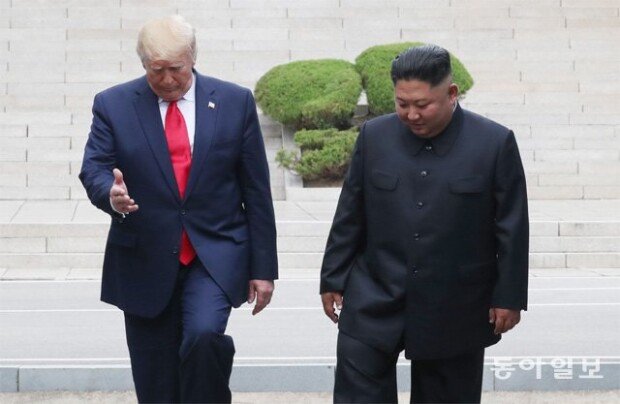Diplomacy experiment with N. Korea is over
Diplomacy experiment with N. Korea is over
Posted December. 18, 2019 07:36,
Updated December. 18, 2019 07:36

When looking back on the past diplomacy with North Korea, we can draw four lessons. First, the true value of nuclear weapons lies not in waging a war but in preventing one. Nuclear weapons stop countries from starting a war against their enemies armed with nukes. This helps explain why the North aims to develop its nuclear program and why settling peace on the Korean peninsula is a goal hard to achieve. The United States has called for the North to denuclearize itself based on the UN Security Council resolutions, but any concessions ostensibly proposed will not be able to remove, reduce, or stop the regime’s ambition toward nuclear development.
North Korean leader Kim Jong Un was not ready to deliver on his promise that he would make efforts toward denuclearization. Nor did he have an ability to do so. Similarly, U.S. President Donald Trump was also not able to provide the level of compensation demanded by Kim including sanctions relief. Thus, Kim had to rely on classical tactics like ballistic missiles, brinksmanship, and bluffing. He cannot present a way for greater economic and political advancement to North Korean people. In the end, more weapons of mass destruction and missiles are nothing but a paper tiger, which can roar only on a piece of paper. If they are actually employed in reality, they will lead the regime to a collapse.
Second, a summit should take place based on a solid foundation of diplomacy. The first Trump-Kim meeting was an acceptable choice given the previously frozen ties between the two sides, but the second summit should have waited longer before it happened so that both sides’ working-level officials could have come up with coordinated agendas.
It was in the right direction that President Trump, in early 2018, seized an opportunity to hold the Singapore summit while supporting South Korean President Moon Jae-in’s peace initiatives. The problem lies not in the fact that the leaders of Washington and Pyongyang produced four agendas but in the fact that the two did not implement enough follow-up measures to deliver on them. Though they created a crack on the ice on the surface through the Singapore summit, they could not break the iceberg of huge stakes below that surface. In addition, the following summit in Hanoi should have served as a chance to send a clear signal that there is a huge gap in understanding between the United States and North Korea. Diplomacy was not smooth back then; it is just that the leaders’ meeting and exaggerated language gave a wrong impression that they saw eye to eye about denuclearization.
Third, North Korea’s young elites should lower their expectations about the country’s economic development in case the country decides to advance its nuclear program. If so, the North will only be able to reach the level of Cambodia economically, yet armed with nuclear weapons. The bright future Trump earlier proposed to Kim should now be replaced with other scenarios. For Pyongyang, building a closer relationship with China can be one scenario. Kim should remember that he can only choose between nuclear weapons and economic development.
Lastly, South Korea and the United States need to focus on maintaining their alliance as solid as ever. The Republican U.S. President has supported the South Korean president with the consistent agenda of putting an end to the long-standing confrontation and division with North Korea. However, Kim Jong Un was not prepared for adjusting the Kim dynasty’s power structure in the least. President Moon, rather than mobilizing all possible means to achieve peace between the two Koreas, should move toward a more restrained goal to display South Korea’s political, economic, and military potential and maintain stability. The Trump administration also seemingly intends to reduce security risks associated with the North so that it can more concentrate on competing with emerging superpowers. Unfortunately, none of the reasons above appears to be as important as whether the Kim regime is willing to or capable of carrying out practical and reasonable steps to get rid of nuclear weapons.






![[단독]年수출 처음 일본 제쳤다…韓 1041조원 vs 日 1021조원](https://dimg.donga.com/c/138/175/90/1/wps/NEWS/IMAGE/2026/01/22/133214781.1.jpg)
